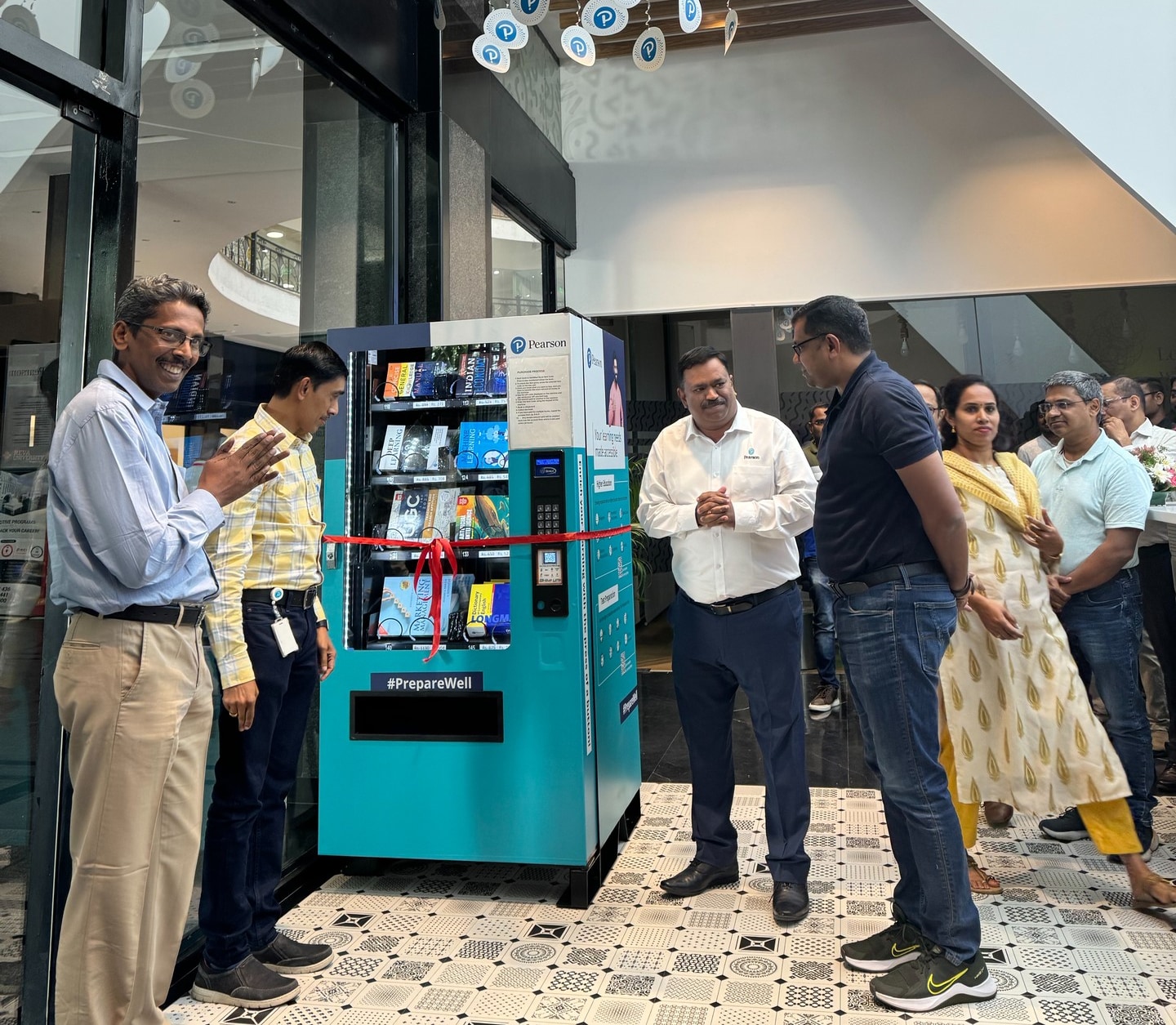Our BTEC courses set us apart: Interview of Jane Baker, VP, Business Development, UK and International, Workforce Skills
by

We offer BTEC Qualifications in a wide range of subject areas – designed to equip students with the knowledge, skills and confidence needed to thrive in a skills-based global economy.
‘Our BTEC courses set us apart’
The Pearson BTEC (Business Technology and Education Council) are a framework of vocational and skill-based courses, offering practical, hands-on training to students across education levels. Jane Baker, vice-president, Business Development, UK & International, Workforce Skills, Pearson, told FE’s Vikram Chaudhary that BTEC Levels 1 and 2 offer learners aged 14-18 the skills they need to prepare for a career or further education, and Level 3 are career-focused qualifications that provide students aged 16-plus with the industry skills they need to progress to employment. Excerpts:
What kind of vocational qualifications do you offer in India?
We offer a wide range, including BTEC (Business Technology and Education Council) – designed to equip students with the knowledge, skills and confidence needed to thrive in a skills-based economy. Developed in collaboration with industry, universities and professional bodies, BTECs emphasis on practical, hands-on learning, tailored to industry needs across sectors such as business, engineering, IT, AI, health & social care, travel & tourism, hospitality, and robotics.
BTEC qualifications provide students a pathway to international universities. BTEC Higher Nationals (HN) are considered equivalent to the first two years of a three-year undergraduate honours’ degree in the UK. We have seen that 90% of BTEC students are likely to be employed after graduating. One of the key strengths of BTECs is their seamless integration of vocational education with academic curriculum, offering flexible learning pathways for upskilling and reskilling, providing learners with diverse career options. Over 6 million BTEC qualifications have been awarded in the last decade.
Are BTECs similar to MOOCs? How do these align with the National Education Policy 2020 goals of mainstreaming vocational education and skilling?
BTECs prioritise practical, applied skills over rote memorisation, which matches the NEP’s focus on hands-on learning.
Secondly, by offering BTECs, educational institutions in India can provide students with skills that are widely accepted by employers both domestically and internationally. This contributes to the NEP’s goal of enhancing the recognition of vocational qualifications, promoting their mainstream acceptance.
Thirdly, BTECs are designed to meet industry needs, ensuring students learn relevant skills. This ties in with the NEP’s goal of improving the quality of vocational education.
What kind of steps do you take to ensure your vocational and academic qualifications meet industry standards?
We’ve established industry advisory boards composed of professionals from relevant sectors. They offer insights into emerging trends, skill requirements, and technological advancements within specific industries, advising us on updating curriculum accordingly.
We also engage with employers, corporate L&D leaders (such as from Amazon Web Services, BMW Group, Schneider Electric, etc), industry associations, and governmental bodies.
Further, we conduct regular research on labour market trends, skill shortages, and technology, leading to reports like the Pearson Skills Outlook Report, offering insights into emerging workforce demands and skill requirements.
What kind of partnerships do you have in India?
We’ve partnered with Buddha Group of Institutions, Solitaire Business Schools and Jetking Infotrain to introduce Pearson’s BTEC HN courses in areas such as art & design, business management, IT, cloud computing, digital marketing and cybersecurity to provide students industry-aligned skill development opportunities, and equip them with the expertise needed to excel in the globalised workplace.
We also collaborated with the National Skill Development Corporation International (NSDCI) to promote globally-recognised BTEC qualifications at their 11,000 training centres and 13,000 academic institutions across India.
Globally, we offer over 2,000 qualifications across 15 sectors, catering to emerging fields such as AI, semiconductor engineering, electric vehicles, robotics, health, and social care.
What, according to you, is the future of international collaboration and transnational education?
We envision a promising future for international collaboration and transnational education in India, focusing on three key areas.
Firstly, there’s an anticipation of an expanded mutual recognition of qualifications (MRQs) framework, encompassing more countries and fields. This expansion will facilitate smoother mobility for Indian students and professionals, enhancing skill development and global employability.
Secondly, we foresee the growth of transnational education programmes, including joint degrees, dual degrees, and online/blended learning options. These will offer students opportunities to learn from international faculty, acquire industry-relevant skills, and compete more effectively in the global job market.
About Pearson
At Pearson, our purpose is simple: to add life to a lifetime of learning. We believe that every learning opportunity is a chance for a personal breakthrough. That’s why our c.20,000 Pearson employees are committed to creating vibrant and enriching learning experiences designed for real-life impact. We are the world’s leading learning company, serving customers in nearly 200 countries with digital content, assessments, qualifications, and data. For us, learning isn’t just what we do. It’s who we are.
Visit us at: www.pearsonplc.com
For more information, please contact: Bhavya Suri, PR & Corporate Affairs, Pearson India & MENA- bhavya.suri@pearson.com
Read More / The Financial Express
read more




